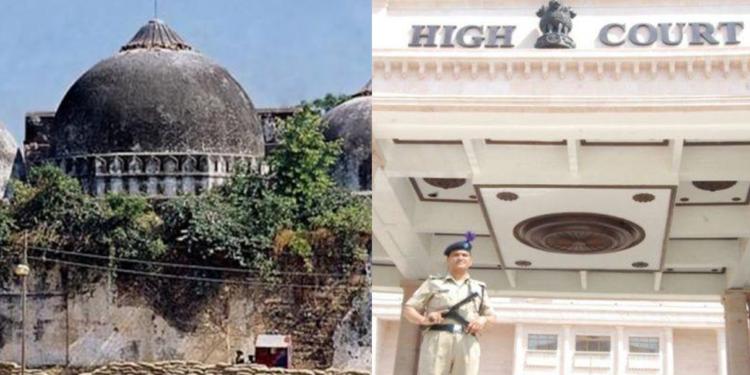On Thursday, the Lucknow Bench of Allahabad High Court dismissed a petition filed by Al Rehman Trust demanding permission to offer Namaz at the Ram Janmabhoomi site at Ayodhya. The court also imposed a fine of Rs 5 lakh on the petitioners saying ‘petition’s aim is to create unrest and waste court’s time’.
Lucknow High Court Bench dismisses petition filed by Al Rehman Trust seeking permission to offer Namaz at disputed Ayodhya site. Court fined petitioners Rs 5 Lakh saying 'petition's aim is to create unrest and waste court's time'.
— ANI UP/Uttarakhand (@ANINewsUP) December 20, 2018
Al Rehman Trust is a registered body based in Rae Bareli and it works to propagate Islam and carries out some educational activities. In its petition, the trust argued that since Hindus are allowed to worship at the makeshift Ram Temple situated on the Ram Janmabhoomi site, Muslims too should also be granted permission to offer Namaz. Al Rehman Trust demanded the permission by citing 2010 High Court order in which the court had granted one-third land of the Ram Janamabhoomi to Muslims. In 2010, a three-judge Allahabad High Court bench, in a 2:1 majority ruling, had passed the judgment that the 2.77 acres of land to be partitioned into three equal parts among – the Sunni Waqf Board, the Nirmohi Akhara and Ram Lalla. The decision was challenged in the Apex Court and the Supreme Court’s judgment is still awaited. On October 29, the Supreme Court adjourned the hearing on Ayodhya case until January 2019. In a major development in September this year, the Supreme Court by 2:1 majority verdict, had refused to refer Ayodhya-Ram Janmabhoomi land dispute case to a larger bench.
For more details: Supreme Court adjourns the hearing on Ayodhya case till January
The Allahabad High Court cited status quo in January 1993 order of the Apex Court and the fact that the 67 acres of the Ram Janmabhoomi land was acquired by the government.
The Allahabad High Court’s decision to impose fine on the trust, and calling their petition a ‘public stunt’ would serve as a lesson to those who misuse the PIL in order to serve their own mean interests. Unfortunately, Public Interest Litigations (PIL) have been grossly misused by some across the country to further their personal interests. Some people file absolutely nonsense PILs which do not have even remote connection to the issues pertaining to public interest. These PILs ultimately result in the wastage of precious time of the court. PILs are for the protection of public interest and these should not be used as tools to get publicity. In the past as well, PILs have been frequently misused for political purposes as well as anti-development works by shady NGOs and interest groups, and to disturb communal harmony. Keeping this in mind, the Supreme Court has observed that the concept of PILs needs to be revisited due to its misuse and a growing number of frivolous PILs.

























